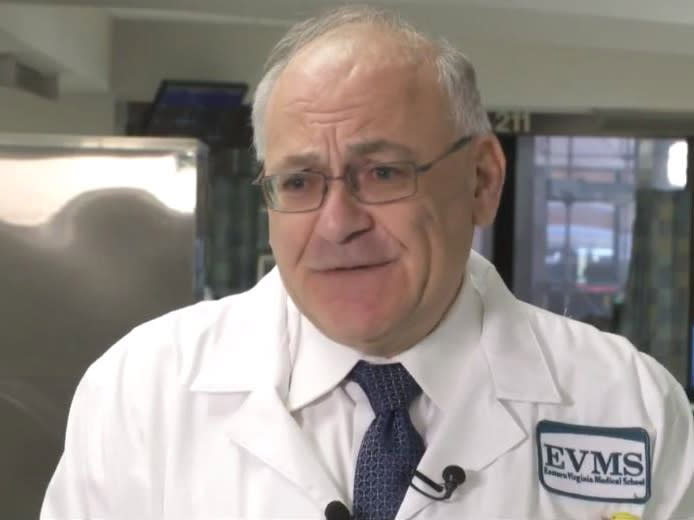Doctor says improvised 'cure' for sepsis has had remarkable results

A doctor in the US state of Virginia claims to have found his own cure for sepsis.
Critical care specialist Paul Marik said the simple treatment, an injected infusion of vitamin C and steroids, has had a remarkable effect on patients with the potentially deadly condition.
Dr Marik told NPR he first tried the treatment as a last resort while working in the intensive care unit of a hospital in the East Coast city of Norfolk, inspired by the findings of a study by researchers at Virginia Commonwealth University (VCU).
“We had this 48-year-old woman who previously had been reasonably healthy, who came in with rapid overwhelming sepsis,” he told the national broadcaster.
“Her kidneys weren't working. Her lungs weren't working. It was absolutely clear to me she was going to die. In a situation like this, you start thinking out of the box.“
The next morning Dr Marik said he “got the shock of my life” when he came to work the next day expecting the patient to be dead. Within two days, he said she was fit to leave the ward.
Sepsis, a rare but serious medical complication that can lead to shock and multiple organ failure, is said to kill 44,000 people every year in Britain.
It can occur when the body’s response to an infection damages organs and tissues and is sometimes referred to as blood poisoning – but this is inaccurate as the condition can affect multiple organs or the entire body without infecting the blood.
Dr Marik first tried the improvised treatment, a vitamin C injection mixed with a low dose of steroids and another vitamin, thiamine, in January 2016.
Since then, he has used it to treat 150 sepsis patients. Just one has died of the condition, claims Dr Marik, who has written up the results of the first 47 patients he treated in a new study published in the journal Chest.
Around a third of the 130,000 cases of sepsis in Britain each year are fatal.
But experts have warned that exciting results from small-scale, non-rigorous studies such as Dr Marik’s often do not hold out in larger population groups.
Further testing is required before any conclusions are drawn about the efficacy of a new treatment, top sepsis researcher Craig Coopersmith told NPR.
"It's an unorthodox way of doing research," Ron Daniels, CEO of the UK Sepsis Trust, told The Independent.
"A clinician who is respected and well-known in the field has taken bits of small studies and pieced them together when faced with a patient. I understand why he’s done that."
"But these are small numbers and we don’t know if it’s the vitamin C or steroids," he said. "The results are almost too good to be true, and we need to do properly controlled trials."
Dr Daniels said if further research did show the treatment was effective, it could potentially "pave the way for future hospital therapies" because the ingredients were cheap and accessible, but emphasised the need for large-scale trials.
Dr Marik, who undertook his research at the Eastern Virginia Medical School, said he decided to try the treatment after reading about a formal study into the use of vitamin C injections for sepsis at VCU in Richmond, the state’s capital.
The National Institutes of Health gave Berry Fowler and his VCU colleagues a grant of $3.2m (£2.6m) to look into the potential of using vitamin C to treat sepsis.
Results are expected later this year.


